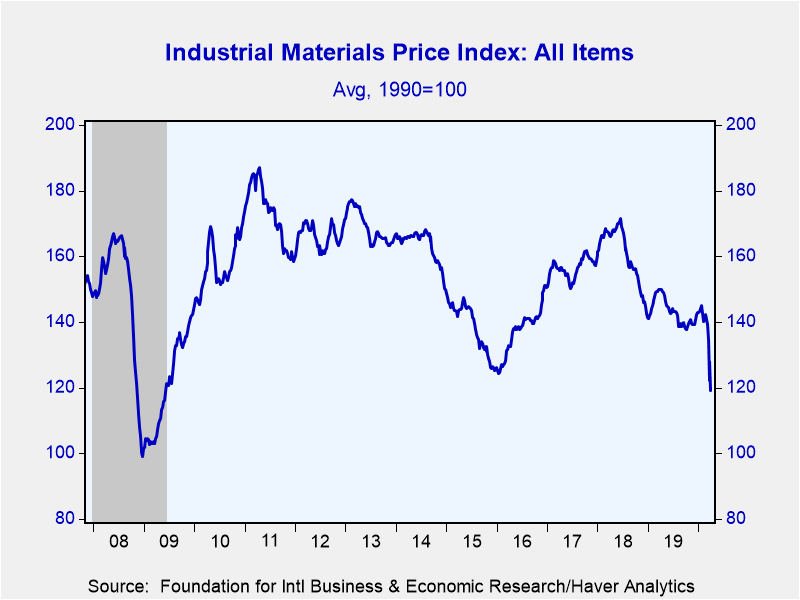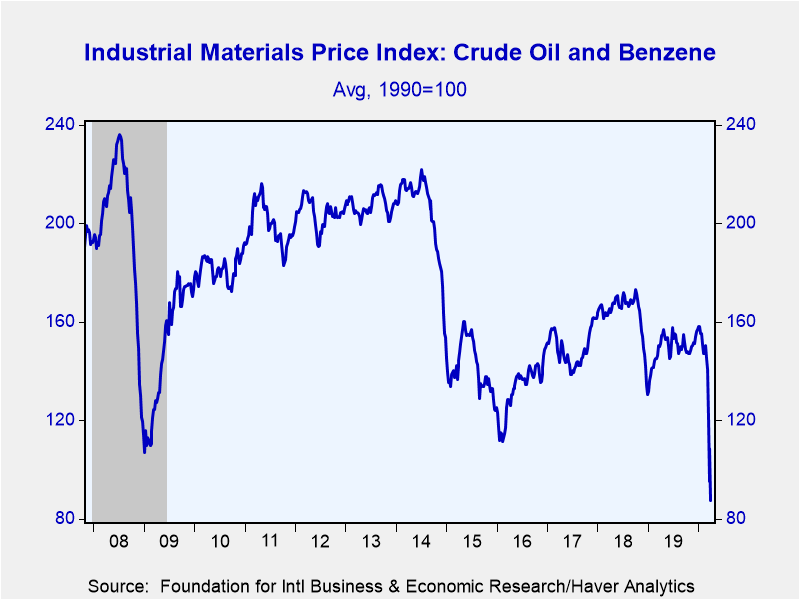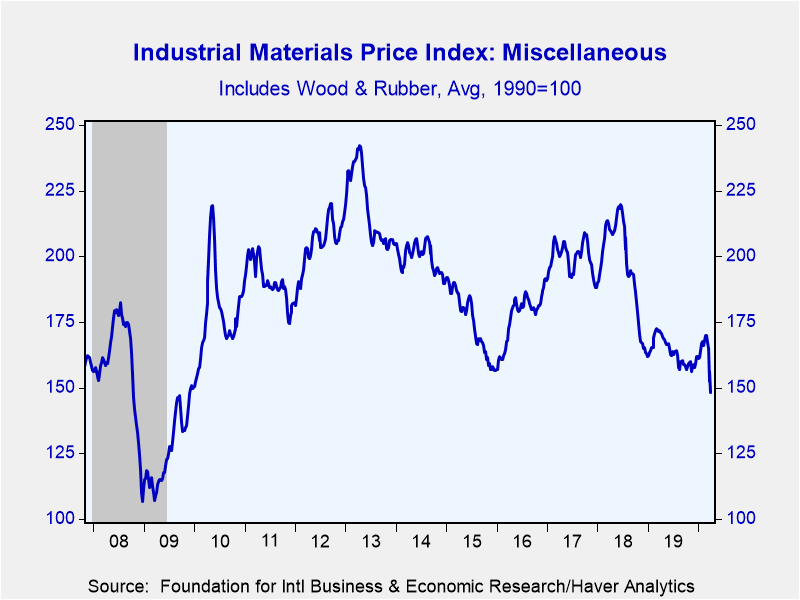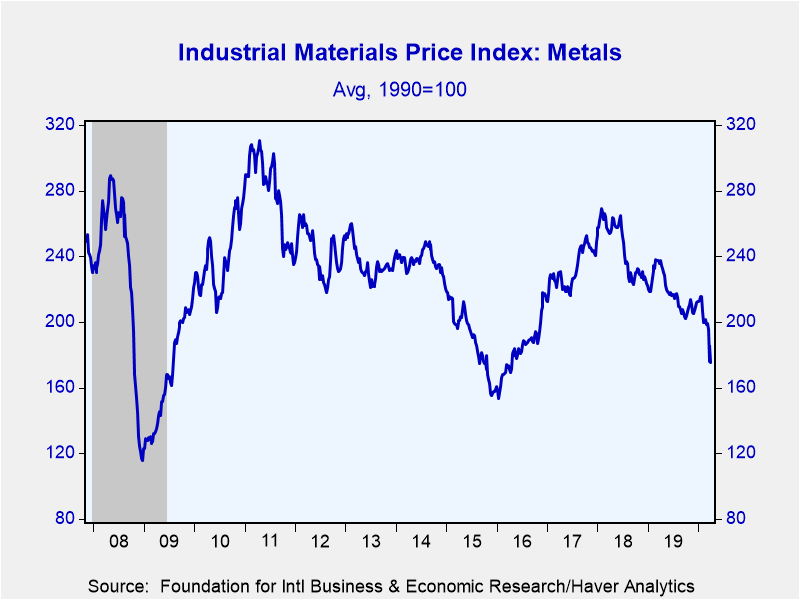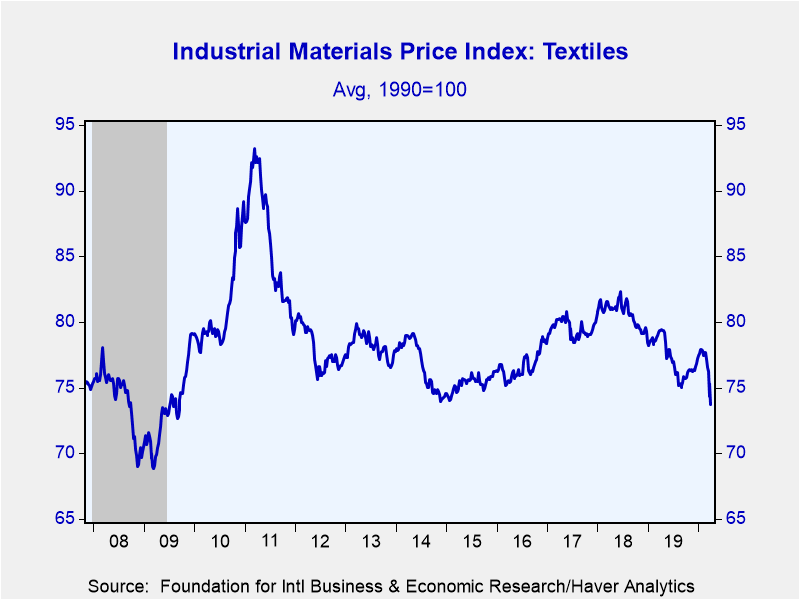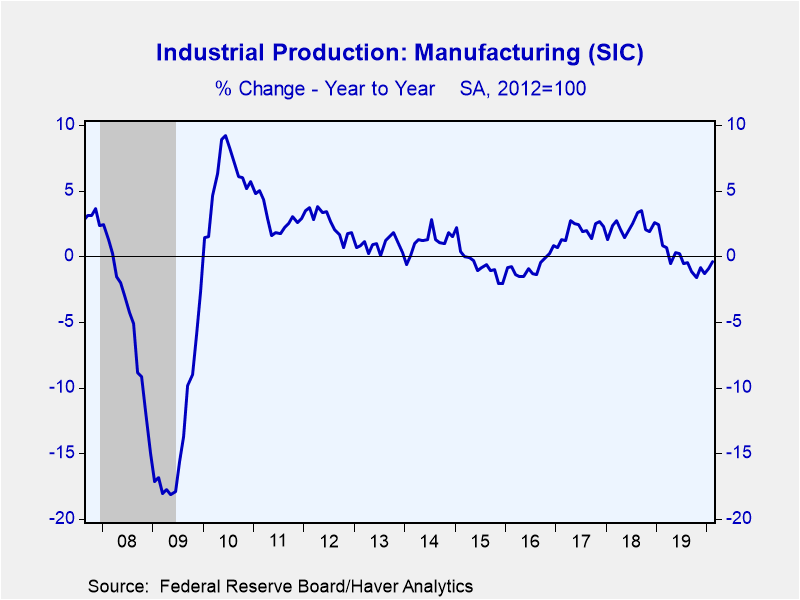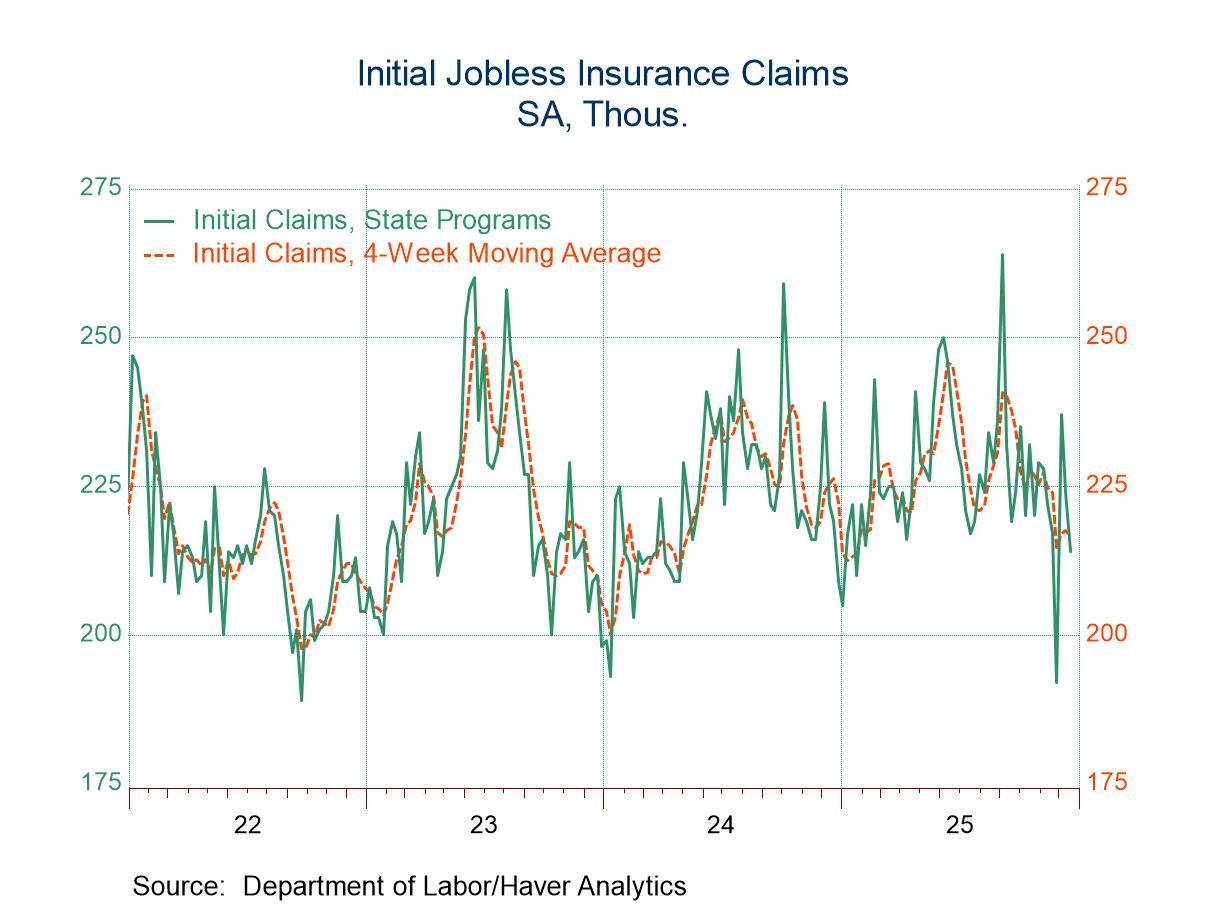 Global| Apr 06 2020
Global| Apr 06 2020FIBER: Industrial Commodity Prices Post Broad-based Declines
by:Tom Moeller
|in:Economy in Brief
Summary
The Industrial Materials Price Index from the Foundation for International Business and Economic Research (FIBER) declined 14.3% during the four weeks ended Friday and 20.5% over the last year. The price index fell to the lowest level [...]
The Industrial Materials Price Index from the Foundation for International Business and Economic Research (FIBER) declined 14.3% during the four weeks ended Friday and 20.5% over the last year. The price index fell to the lowest level since June 2009.
Prices in the crude oil & benzene group declined by over one-third during the last four weeks as WTI crude oil prices weakened to $21.80 per barrel, down from a high of $61.92 in the first week of January. They moved higher to $24.18 on Friday. Prices were at the lowest level since March 2002. Prices of petro-chemical benzene fell by nearly two-thirds in the last four weeks (-55.1% y/y). Excluding crude oil, industrial commodity prices declined 11.1% during the last four weeks and were off 16.5% over the last year.
Prices in the miscellaneous group declined 11.4% over the last four weeks as framing lumber costs declined 29.7% over that period. Plywood prices held steady but were 12.2% lower over the course of the last year. The price of natural rubber declined 11.9% during the last four weeks. Metals prices fell 11.8% in four weeks, dragged down by a 14.9% drop in the costs of copper scrap. Aluminum prices were off 12.8% in four weeks and the cost of steel scrap fell 11.9%. Zinc prices fell 7.4% (-38.0% y/y) and the cost of lead declined 10.0% in four weeks (-15.1% y/y). Textile prices also weakened 3.6% in four weeks led by a 21.3% drop in the cost of cotton to the lowest level since April 2006. This decline was countered by a 0.9% rise in the cost of burlap, which were unchanged y/y.
Weakness in industrial commodity prices continues to reflect a struggling U.S. factory sector. Output improved 0.1% in February (-0.4% y/y) and has been moving sideways since the spring of 2019. During the last ten years, there has been a 66% correlation between the y/y change in industrial commodity prices and the y/y change in factory sector production.
Commodity price data can be found in Haver's DAILY, WEEKLY, USECON and CMDTY databases. The NABE forecast is in the SURVEYS database.
| FIBER Industrial Materials Price Index (%) | 1-Mth | 3-Mth | 6-Mth | 12-Mth | 2019 | 2018 | 2017 |
|---|---|---|---|---|---|---|---|
| All Items | -14.3 | -16.6 | -13.6 | -20.5 | 1.1 | -12.0 | 6.7 |
| Excluding Crude Oil | -11.1 | -12.1 | -9.5 | -16.5 | -0.6 | -11.1 | 4.9 |
| Textiles | -3.6 | -4.8 | -2.6 | -7.1 | -1.6 | -2.8 | 3.0 |
| Cotton (cents per pound) | -21.3 | -30.1 | -22.5 | -37.0 | -6.6 | -9.2 | 9.8 |
| Metals | -11.8 | -17.5 | -13.2 | -26.0 | -4.3 | -12.2 | 18.6 |
| Aluminum ($ per metric ton) | -12.8 | -17.2 | -13.0 | -21.1 | -6.5 | -12.7 | 26.0 |
| Copper Scrap (cents per pound) | -14.9 | -22.5 | -15.5 | -26.0 | 3.5 | -16.1 | 29.3 |
| Steel Scrap ($ per ton) | -11.9 | -18.2 | 2.0 | -23.8 | -0.8 | 2.3 | 16.8 |
| Crude Oil & Benzene | -37.8 | -44.7 | -41.1 | -42.1 | 20.2 | -20.0 | 8.1 |
| Crude Oil (WTI, $ per Barrel) | -53.0 | -64.8 | -59.7 | -64.8 | 35.5 | -24.4 | 10.9 |
| Miscellaneous | -11.4 | -8.0 | -6.1 | -13.2 | -0.0 | -14.8 | -0.5 |
| Framing Lumber ($ per 1000 board ft.) | -29.7 | -30.6 | -23.6 | -22.5 | 22.6 | -23.1 | 20.0 |
| Natural Rubber (cents per pound) | -11.9 | -9.3 | -0.9 | -15.6 | 10.7 | -4.1 | -29.6 |
Tom Moeller
AuthorMore in Author Profile »Prior to joining Haver Analytics in 2000, Mr. Moeller worked as the Economist at Chancellor Capital Management from 1985 to 1999. There, he developed comprehensive economic forecasts and interpreted economic data for equity and fixed income portfolio managers. Also at Chancellor, Mr. Moeller worked as an equity analyst and was responsible for researching and rating companies in the economically sensitive automobile and housing industries for investment in Chancellor’s equity portfolio. Prior to joining Chancellor, Mr. Moeller was an Economist at Citibank from 1979 to 1984. He also analyzed pricing behavior in the metals industry for the Council on Wage and Price Stability in Washington, D.C. In 1999, Mr. Moeller received the award for most accurate forecast from the Forecasters' Club of New York. From 1990 to 1992 he was President of the New York Association for Business Economists. Mr. Moeller earned an M.B.A. in Finance from Fordham University, where he graduated in 1987. He holds a Bachelor of Arts in Economics from George Washington University.


